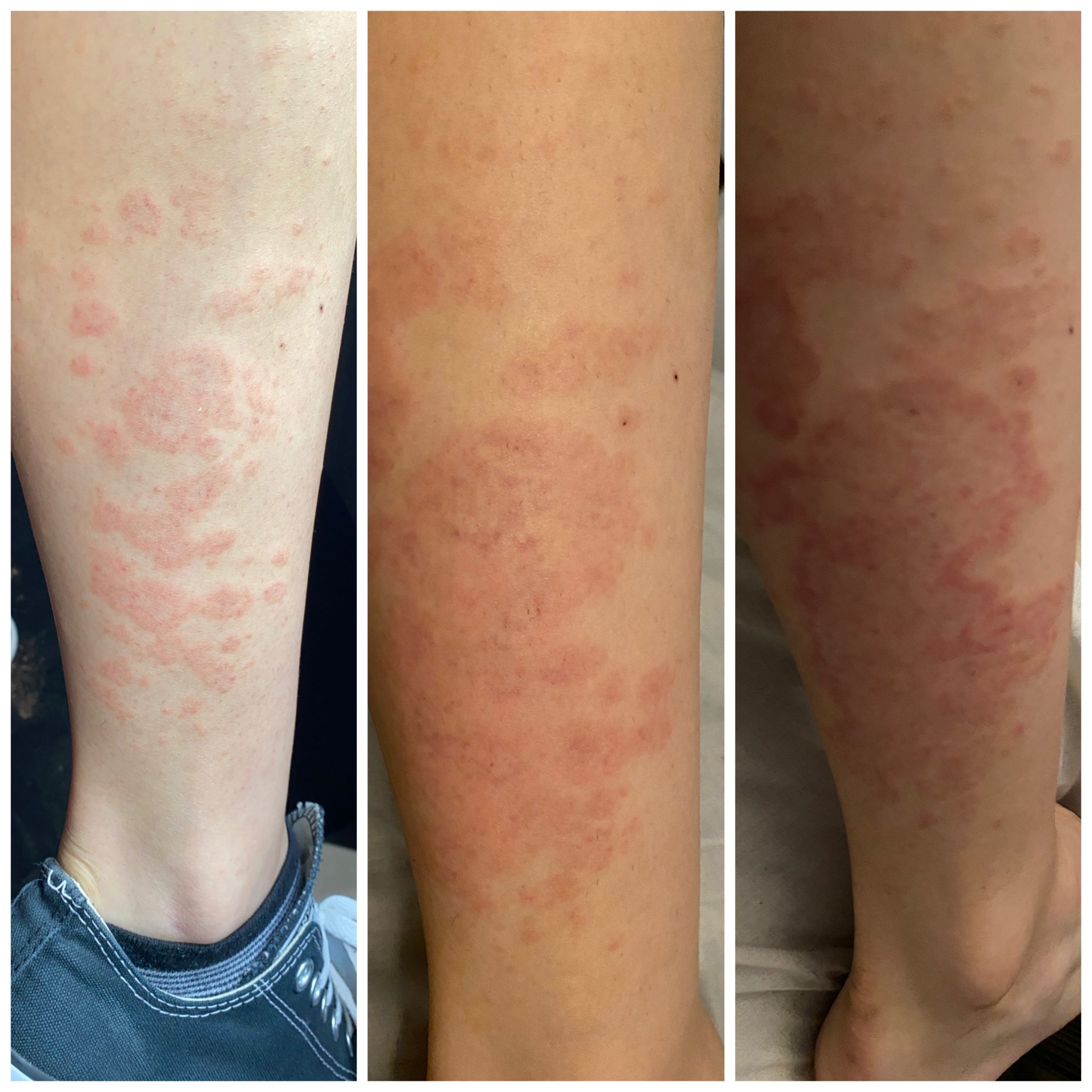Itchy Little Bumps All Over Your Body? Understanding Skin Irritations
You wake up one morning, scratch a seemingly harmless itch, and suddenly realize – something is definitely off. Those tiny, itchy bumps weren't there yesterday. So, what's the deal? Skin irritations are a universal experience, and while often harmless, they can be incredibly frustrating. Before you start panicking, it's time to understand what might be causing those itchy bumps and how to find relief.
From allergic reactions to environmental factors and even underlying medical conditions, the culprit behind those itchy bumps could be varied. One common mistake many people make is self-diagnosing. While the internet can be a valuable resource for preliminary research, nothing replaces the expert opinion of a healthcare professional.
This is especially important because what works for one person might worsen the situation for another. The key takeaway? Listen to your body. If you experience persistent itching, discomfort, or notice any unusual changes in your skin, seeking professional medical advice is crucial.
Let's delve deeper into the potential causes of itchy skin bumps. One common trigger is contact dermatitis, an inflammatory skin reaction caused by direct contact with irritants or allergens. Think harsh detergents, certain fabrics, cosmetics, or even plants like poison ivy. Another possibility is an allergic reaction to food, medication, or insect bites.
In some cases, those pesky bumps could be a symptom of a viral infection, like chickenpox or shingles. These conditions often present with other symptoms, such as fever, fatigue, or blisters. Eczema, psoriasis, and hives are other skin conditions that manifest as itchy bumps or rashes. Identifying the underlying cause is crucial for effective treatment.
Advantages and Disadvantages of Self-Treating Itchy Skin Bumps
While it's tempting to try home remedies for those itchy bumps, it's essential to be aware of both the potential benefits and drawbacks of self-treatment.
| Advantages | Disadvantages |
|---|---|
| Convenience and accessibility of over-the-counter remedies | Risk of misdiagnosis and delaying necessary medical attention |
| Cost-effectiveness of home remedies | Potential for allergic reactions or adverse effects from certain ingredients |
| Temporary relief from itching and discomfort | Ineffectiveness against certain skin conditions, requiring professional treatment |
Best Practices for Managing Itchy Skin
Whether you're waiting for a doctor's appointment or managing a mild case of itchy bumps, here are some practices that can provide relief:
- Resist the Urge to Scratch: As tempting as it might be, scratching can worsen the irritation, increase the risk of infection, and potentially lead to scarring.
- Keep the Area Clean: Gently cleanse the affected area with lukewarm water and a mild, fragrance-free soap. Avoid hot water, as it can further dry out the skin.
- Apply a Cold Compress: A cold compress or ice pack wrapped in a clean towel can help reduce inflammation and alleviate itching.
- Moisturize Regularly: Use a fragrance-free, hypoallergenic moisturizer to soothe and hydrate the skin, creating a protective barrier.
- Over-the-Counter Relief: Consider using over-the-counter anti-itch creams or hydrocortisone cream, but always follow the instructions carefully.
Common Questions and Answers About Itchy Skin Bumps
Here are some frequently asked questions about itchy skin bumps:
- Q: When should I see a doctor about itchy skin bumps?
A: If the itching is severe, persistent, accompanied by other symptoms like fever, or doesn't improve with home remedies, it's crucial to consult a doctor.
- Q: Can stress cause itchy skin bumps?
A: While stress itself doesn't directly cause bumps, it can trigger or worsen existing skin conditions like eczema or psoriasis.
- Q: Are all itchy skin bumps contagious?
A: No, not all itchy skin bumps are contagious. Contagious causes are usually due to infections like chickenpox or scabies.
- Q: What home remedies can help relieve itchy skin?
A: Oatmeal baths, cold compresses, aloe vera gel, and baking soda paste can offer soothing relief from itching.
- Q: How long do itchy skin bumps typically last?
A: The duration varies depending on the underlying cause. Some bumps disappear within days, while others may persist for weeks or require medical treatment.
- Q: Can I prevent itchy skin bumps?
A: While not all causes are preventable, avoiding known triggers, practicing good hygiene, and moisturizing regularly can minimize the risk.
- Q: What are some common mistakes people make when dealing with itchy skin bumps?
A: Common mistakes include excessive scratching, using harsh soaps, not moisturizing, and delaying seeking medical advice when needed.
- Q: What types of doctors specialize in skin conditions?
A: Dermatologists specialize in diagnosing and treating skin, hair, and nail conditions.
Dealing with itchy skin bumps can be a nuisance, but remember, you don't have to suffer in silence. By understanding the potential causes, adopting soothing practices, and seeking professional guidance when necessary, you can navigate those itchy moments with greater confidence and find the relief you deserve. Remember, every individual's skin is unique, so what works for one person might not work for another. Listen to your body, be proactive in your approach, and don't hesitate to reach out to a healthcare professional for personalized guidance.
Ink spired using free printable simple stencils tattoo for your next design
Make a statement inspiring entrance decor ideas for home
Spice up your nights the art of funny good night greetings in spanish














